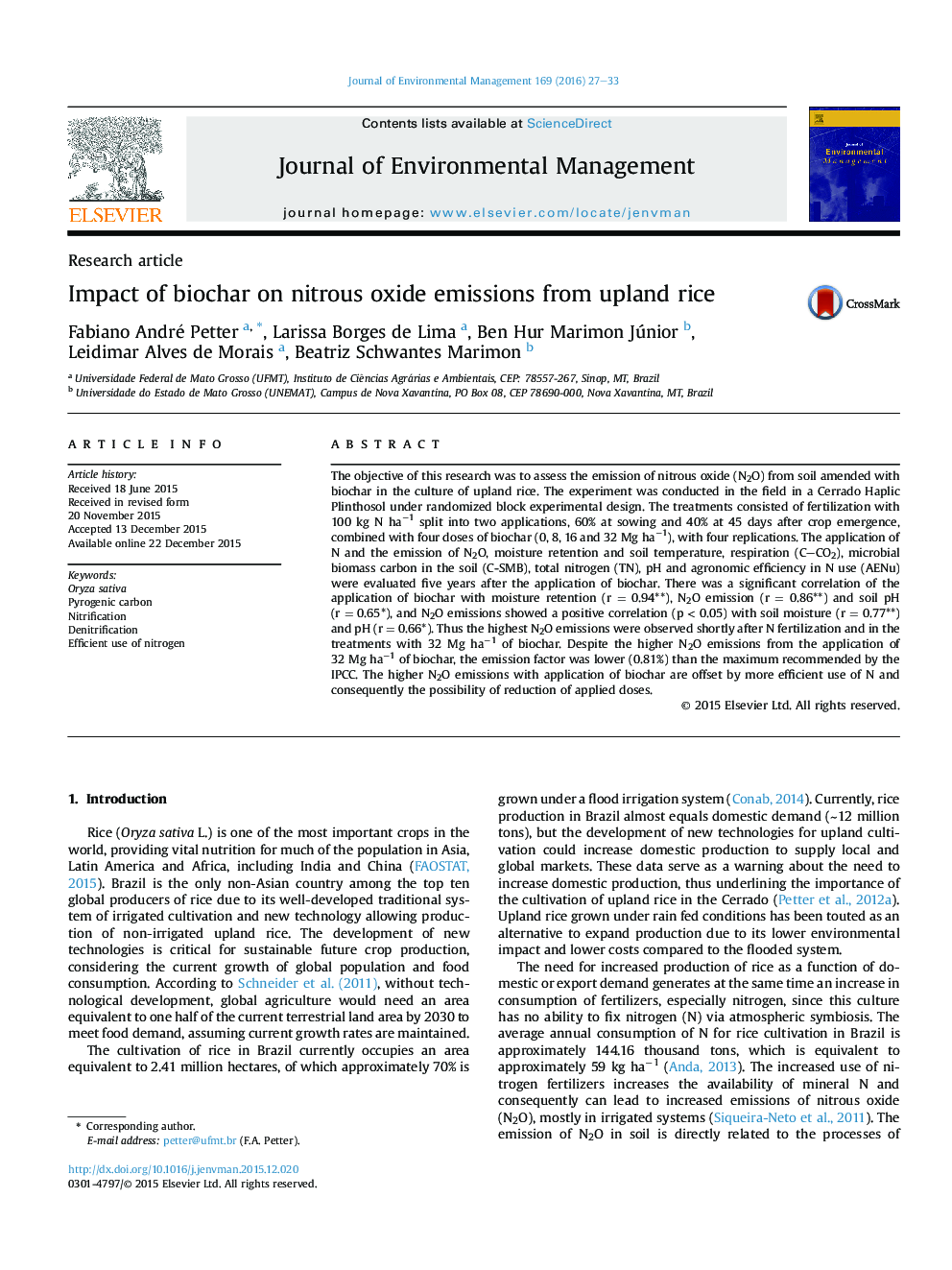| Article ID | Journal | Published Year | Pages | File Type |
|---|---|---|---|---|
| 1055433 | Journal of Environmental Management | 2016 | 7 Pages |
•Application of biochar in soil has effect on the emission of nitrous oxide.•Biochar increases the retention capacity of soil moisture.•Biochar reduces soil acidity.•Biochar improves the agronomic efficiency of nitrogen use.•The emission factor for nitrous oxide was lower than recommended by the IPCC.
The objective of this research was to assess the emission of nitrous oxide (N2O) from soil amended with biochar in the culture of upland rice. The experiment was conducted in the field in a Cerrado Haplic Plinthosol under randomized block experimental design. The treatments consisted of fertilization with 100 kg N ha−1 split into two applications, 60% at sowing and 40% at 45 days after crop emergence, combined with four doses of biochar (0, 8, 16 and 32 Mg ha−1), with four replications. The application of N and the emission of N2O, moisture retention and soil temperature, respiration (C–CO2), microbial biomass carbon in the soil (C-SMB), total nitrogen (TN), pH and agronomic efficiency in N use (AENu) were evaluated five years after the application of biochar. There was a significant correlation of the application of biochar with moisture retention (r = 0.94**), N2O emission (r = 0.86**) and soil pH (r = 0.65*), and N2O emissions showed a positive correlation (p < 0.05) with soil moisture (r = 0.77**) and pH (r = 0.66*). Thus the highest N2O emissions were observed shortly after N fertilization and in the treatments with 32 Mg ha−1 of biochar. Despite the higher N2O emissions from the application of 32 Mg ha−1 of biochar, the emission factor was lower (0.81%) than the maximum recommended by the IPCC. The higher N2O emissions with application of biochar are offset by more efficient use of N and consequently the possibility of reduction of applied doses.
